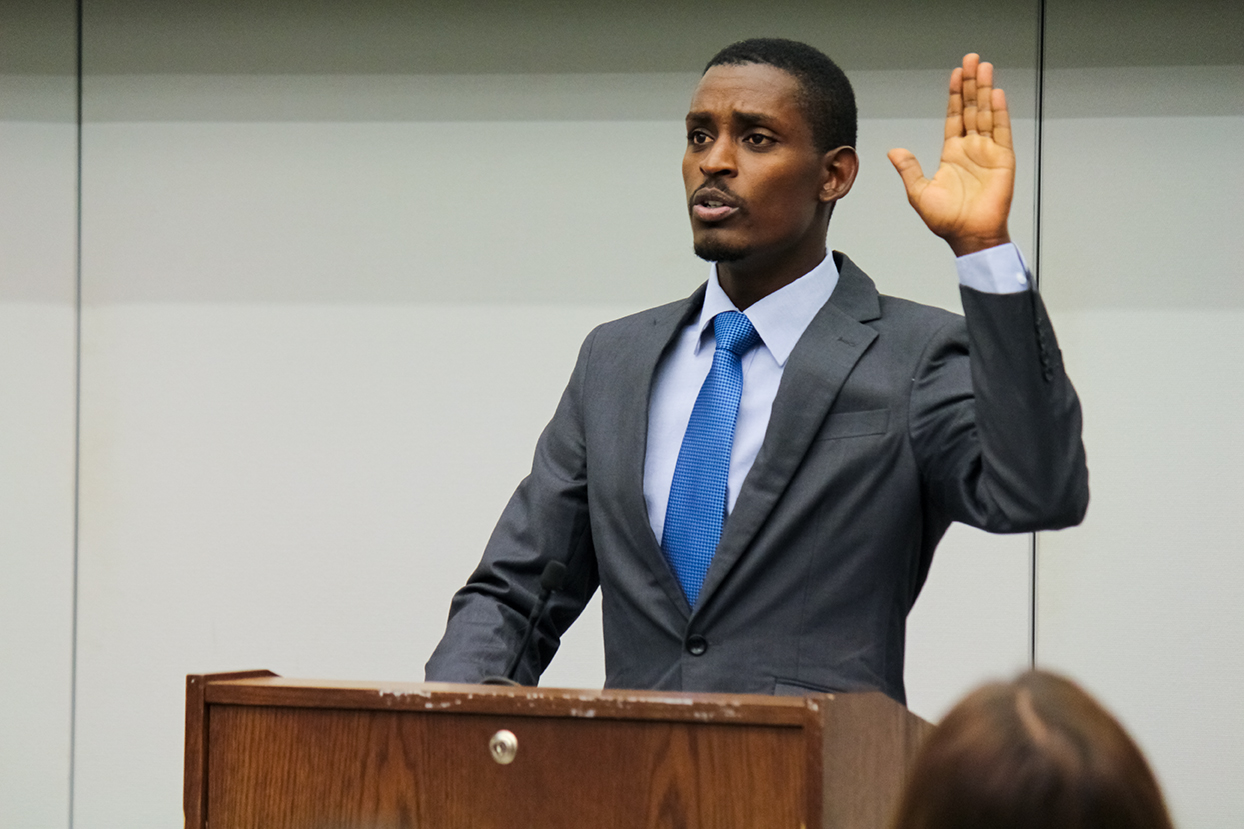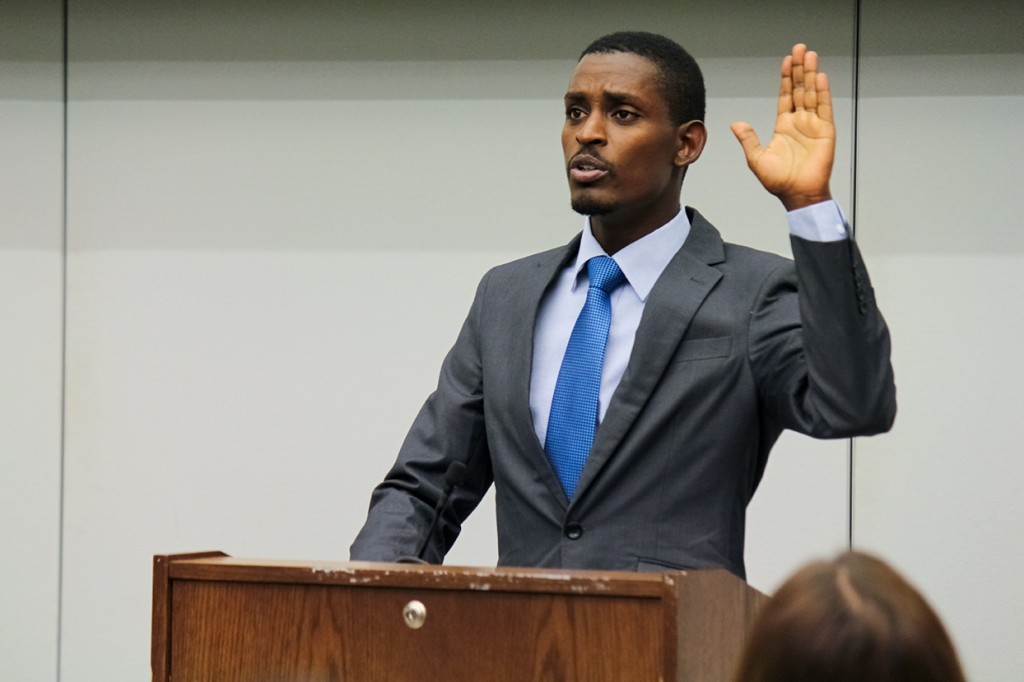

A generation of young adults in Rwanda survived the country’s 1994 genocide that killed nearly one million people. On Monday Sept. 28, some of them visited the University of Miami to debate how to respond to such a catastrophe.
Members of iDebate Rwanda are touring the United States as part of the series “Voices From a Post-Genocide Generation.” University of Miami’s debate team argued that forgiveness is necessary in the aftermath of such an event, while the Rwandan team said that justice was needed before anyone could forgive. Renee Reneau, Michael Fuentes and Rachel Chapnik represented UM against Maya Musenga, Clemence Mbabazi and Jesh Arnold Tugume of the Rwandan iDebate team.
“Forgiveness is the only way to de-escalate conflict,” Reneau said during UM’s opening statement.
Musenga, a member of the Rwandan team, contradicted this idea with a powerful anecdote from a survivor of the genocide.
“Justice is a prerequisite for forgiveness,” Musenga explained.
Chapnik and Fuentes from UM continued to press the psychological benefit of forgiveness despite the obvious difficulties, saying that “[There is] no healing structure caused by a victim of justice.”
The opposition, provided by Tugume and Mbabazi, discussed the impossibility of accepting apologies in post-genocide Rwanda.
“How can you forgive if you have to see the person who murdered your family every day?” said Mbabazi. The outcome of the debate was decided by an audience vote. The Rwandan team won by a large majority.
Following the debate was a powerful talk by Jean Michel Habineza, iDebate’s coach and international coordinator. Habineza discussed the impact of the genocide on the Rwandan national identity as well as the power iDebate has to help young Rwandans.
“To you, one million [victims] is just a number, but to us [Rwandans], it’s an uncle we may never meet, or a grandparent we may never love,” Habineza said.
According to Habineza, debate helps to build confidence and to force one to understand another’s opinion. Debate also aids in building a national identity, as 60 percent of the Rwandan population is under 25, which makes up a very impressionable and important generation of youth.
“By taking part in debate, students become engaged learners, critical thinkers and leaders who are effective advocates for themselves and their communities,” says the 2014 iDebate Annual Report.
After UM, iDebate will continue debating against other college teams as well as speaking to high school audiences. iDebate’s second annual American tour has already visited California, Washington and Texas.
“It’s a healing process for us to get to come speak to people that are willing to lend a listening ear,” said Tugume. Even seasoned debate veterans were moved by having the Rwandan team in attendance.
“I’ve been in debate for my entire life,” said David L. Steinberg, UM’s debate director, “but it’s never touched my heart as much as when he [Habineza] was talking about its impact in Rwanda.”
Follow the remainder of iDebate’s American tour on their Facebook page, iDebate Rwanda.






